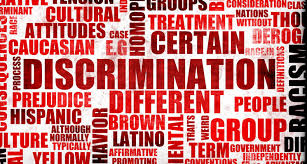Did You Know?
No, you do not. Being a bully is not illegal (unless you are being singled out due to your age, sex, race, refusing sexual advances, just came back from FMLA, etc.). Since illegal retaliation only can occur when an employee makes a complaint about perceived unlawful behavior (and merely being a bully is not unlawful), you have no protection from retaliation under the law.
If You Made a Complaint of Workplace behavior Protected by Law,
Then Being Subjected to Reciprocal Adverse Employment Action is Illegal
Title VII, and related federal laws, protect people from being treated unfairly if the reason for the unfair treatment is the employee's age, sex (including pregnancy), race, national origin, religious beliefs or disability. In addition, employees are protected from sexual harassment, entitled to Family and Medical Leave under FMLA if qualified) and entitled to seek a reasonable accommodation under the American's With Disabilities Act.
People who fall into these categories are deemed to be members of a "Protected Class."
So, if your complaint to HR specifically stated that you were being bullied because of the fact that you are a member of a Protected Class (i.e. because of your race, age, sex, etc), then you engaged in "Protected Activity" and any retaliation taken against you would be illegal.
Termination - The Ultimate "Adverse Employment Action
Simply, adverse employment action is anything bad that can happen to an employee at work! The most significant adverse employment actions, in descending order if you will, are termination, demotion with reduction in pay, pay reduction without change in status, being denied a promotion and suspension without pay. These are the actions contingent fee lawyers look for, because the loss in pay means the employee has real, ongoing monetary damages.
Common adverse employment actions that are more subtle include, being put on a performance improvement plan, suspension with pay, being excluded from meetings and choice assignments, being ignored and becoming a lightning rod for unfair criticism from the boss.
If No Loss of Pay is Involved, Then the Situation is Often Far More Difficult to Manage
Critically, without a loss of pay one is left only with subjective evidence of an adverse employer reaction, easily explained by an employer's claim that the corrective action was based on performance and had nothing to do with the employee's complaint of unlawful workplace treatment.
Moreover, an employee subjected to such "quiet" adverse employment action is that an employer undertaking such a course of conduct is often hoping to make the employee quit. Yet, quitting a job without a new job in hand is seldom a good move occupationally!
Finally, lawyers are not particularly interested in matters that do not include overt adverse employment action (i.e. one involving loss of pay), and strategies for dealing with such situations can be difficult, costly and prolonged.
Consider these examples:
BINGO!
The most common tactic undertaken by employers after an employee engages in Protected Activity is not to fire or demote them. That would be too obvious.
What Are the Signs That My Employer is Attempting to Constructively Discharge Me in Retaliation for a Complaint I Made to Human Resources?
The "time-honored" approach is to employ a campaign designed to make the employee's life at work so miserable that he/she will eventually quit. Here is some of the most common, time-honored ordnance used in such schemes:
Embarrassing
the employee via public rebuke in presence of co-workers
Although you may not have a "case" worth any real money yet, a qualified and experience employee-rights lawyer can help an employee being subjected to a Hostile Work Environment create and employ any one of a number of strategies designed to give the employee the upper hand.
These strategies vary from case to case, and are too diverse and numerous to list here.
In addition, it is unlawful for a company to retaliate an employee who has exercised his/her rights under certain laws, such as the Family and Medical Leave Act, the Fair Labor Standards Act (overtime law) or state workers compensation laws. So, if you are punished after taking family leave, asking for overtime payments or going out on workers compensation, you may have a claim for illegal retaliation.
After I Complained About Being Bullied, Singled out for Harassment, or Treated Unfairly by a Supervisor Who is Out to Get Me Because He/She Does Not Like Me, I Have Been the Victim of Retaliation - Isn't That Illegal?
This is perhaps the most common question WE get. Here is the answer:
No.
If you are simply being treated unfairly because your boss or co-workers do not like you, like someone more than you, or are simply jerks, and you complain about such mistreatment, you are not protected from retaliation under federal laws, or the laws of Pennsylvania (or in most any other state).
That is so because, as pointed out above, "complaining employees" are protected from retaliation only if they lodge reasonable complaints that the subject mistreatment exists because of their status as a member of a Protected Class.
So, if you complain to HR about a jerky boss, a co-employee's nastiness and deceit, or the fact that you are being treated differently than your co-worker(s), you are without any protection from retaliation UNLESS you specify in your complaint that you believe the reason for the situation is your inclusion within a Protected Class.
Certainly, this is disappointing news for many readers, but these are standard, textbook employment law principles and, absent some major change (like the passage of a law making workplace bullying illegal), that is the law.
Timing is Everything in Retaliation Cases
The Timing of an Employer's Adverse Employment Action is Critical in a Retaliation Case
Consider these examples:
1) Jenna goes to the company HR Director and alleges that her immediate supervisor, Roger, has asked her to have sex, and suggested that is she did not have sex with him, "your future here may not be prosperous." The HR Director says, "Jenna, Roger is a good friend of mine, and no one has ever complained about any sort of misbehavior where he is concerned until you. You have only been here 6 months, and do not seem to be very happy. Your just not a good fit her. Your fired."
Every employment lawyer in America would take Jenna's case.
1) Jenna goes to the company HR Director and alleges that her immediate supervisor, Roger, has asked her to have sex, and suggested that is she did not have sex with him, "your future here may not be prosperous. The HR Director says, "Jenna, we will investigate this immediately." The company does so, finds Jenna credible, demotes Roger and moves him to another location. Over the next 6 months, Jenna feels that she is being excluded from work and social functions, believes that her co-workers "Look at me funny," and is uncomfortable when from time to time she is forced to be on the same Zoom call as Roger. Her performance suffers, and her new boss puts her on a Performance Improvement Plan. Jenna is given 60 days to improve but her new boss says she failed to meet the criteria for improvement. Eleven months to the day after her complaint about Roger, Jenna is called into a meeting with the HR Director and her new boss, and told she is fired.
Few employment lawyers in America would take Jenna's case. First, the company took reasonable corrective action.
Second, there appears to be objective evidence of Jenna's performance failures (which she asserts were attributable to the Hostile Work Environment she suffered after she made her complaint), and the new boss who barely knew Roger, credibly asserts that Jenna failed the PIP. Finally, and as a matter of law in many jurisdictions, the passage of 11 months in between complaint and adverse employment action (or even 9 months if you characterize the PIP as the adverse response) is simply too long of a time as a matter of law.
Are You a Member of a Protected Class?
They Are Trying to Get Me to Quit - Would That be a Constructive Discharge?
BINGO!
The most common tactic undertaken by employers after an employee engages in Protected Activity is not to fire or demote them. That would be too obvious.
Sometimes, a Resignation is What an Employer is Hoping For
What Are the Signs That My Employer is Attempting to Constructively Discharge Me in Retaliation for a Complaint I Made to Human Resources?
The "time-honored" approach is to employ a campaign designed to make the employee's life at work so miserable that he/she will eventually quit. Here is some of the most common, time-honored ordnance used in such schemes:
The Dreaded PIP
· Isolating
the employee by ignoring him/her whenever possible
· Excluding
the employee from meetings to which he/she is ordinarily invited
· Criticizing
the employee’s work-product
· Disciplining
the employee for minor infractions
· Subjecting
the employee to a Performance Improvement Plan
Feeling Isolated? Singled Out? Alone?
What Should I Do If My Company is Punishing Me in Retaliation for My Complaint of a Hostile Work Environment?
Although you may not have a "case" worth any real money yet, a qualified and experience employee-rights lawyer can help an employee being subjected to a Hostile Work Environment create and employ any one of a number of strategies designed to give the employee the upper hand.
These strategies vary from case to case, and are too diverse and numerous to list here.
You Don't Have to Do This Alone
CALL 610-647-5027
What is a Hostile Work Environment - Am I a Victim of Unlawful Retaliation?
In the context of retaliation claims, an unlawful Hostile Work Environment is one in which an employee is treated in an aggressively negative way by co-workers and/or supervisors who dislike the employee because of his/her age, sex (including pregnancy), race, national origin, religious beliefs or disability.
In other words, if you are in a Protected Class, and comments are made about that aspect of you, or if you are being denied opportunities or subject to punishment as compared to your co-workers, and you believe the reason for this treatment is your age, sex, race, etc., you may be the subject of an illegal Hostile Work Environment.
If you believe you are being treated improperly because you are in one of these Protected Classes, and you make a complaint to the company that specifies your belief (it must specifically refer to the fact that you believe you are being treated hostilely BECAUSE of your age, sex, race, etc.), then any subsequent act of retaliation against you could be illegal.
In the context of retaliation claims, an unlawful Hostile Work Environment is one in which an employee is treated in an aggressively negative way by co-workers and/or supervisors who dislike the employee because of his/her age, sex (including pregnancy), race, national origin, religious beliefs or disability.
 |
| Mistreatment Must Be Because You Are "Different" In Order to be Illegal |
In other words, if you are in a Protected Class, and comments are made about that aspect of you, or if you are being denied opportunities or subject to punishment as compared to your co-workers, and you believe the reason for this treatment is your age, sex, race, etc., you may be the subject of an illegal Hostile Work Environment.
If you believe you are being treated improperly because you are in one of these Protected Classes, and you make a complaint to the company that specifies your belief (it must specifically refer to the fact that you believe you are being treated hostilely BECAUSE of your age, sex, race, etc.), then any subsequent act of retaliation against you could be illegal.
300 Day Deadline!
Remember, you have no more than 300 days to file a charge of illegal discrimination or retaliation to the EEOC - or else all of your rights will be lost! For smaller companies (4 or less employees), you have only 180 days to file with the Pennsylvania Human Relations Commission.
If You Take FMLA Leave, You Are Protected from Adverse Employment Action
Illegal Retaliation Under Family and Medical Leave Act, Overtime Laws or Workers Compensation Laws
In addition, it is unlawful for a company to retaliate an employee who has exercised his/her rights under certain laws, such as the Family and Medical Leave Act, the Fair Labor Standards Act (overtime law) or state workers compensation laws. So, if you are punished after taking family leave, asking for overtime payments or going out on workers compensation, you may have a claim for illegal retaliation.
After I Complained About Being Bullied, Singled out for Harassment, or Treated Unfairly by a Supervisor Who is Out to Get Me Because He/She Does Not Like Me, I Have Been the Victim of Retaliation - Isn't That Illegal?
This is perhaps the most common question WE get. Here is the answer:
No.
If you are simply being treated unfairly because your boss or co-workers do not like you, like someone more than you, or are simply jerks, and you complain about such mistreatment, you are not protected from retaliation under federal laws, or the laws of Pennsylvania (or in most any other state).
That is so because, as pointed out above, "complaining employees" are protected from retaliation only if they lodge reasonable complaints that the subject mistreatment exists because of their status as a member of a Protected Class.
So, if you complain to HR about a jerky boss, a co-employee's nastiness and deceit, or the fact that you are being treated differently than your co-worker(s), you are without any protection from retaliation UNLESS you specify in your complaint that you believe the reason for the situation is your inclusion within a Protected Class.
Certainly, this is disappointing news for many readers, but these are standard, textbook employment law principles and, absent some major change (like the passage of a law making workplace bullying illegal), that is the law.
Philadelphia Are Employment
Attorney Representing Employees Who Are Victims of Discrimination
We typically represent employees who need an employment lawyer in Philadelphia
County, Chester County, Delaware County, Bucks County, Berks County, Lancaster
County and Montgomery County.
Pennsylvania
Employment Attorney Provides Free Telephone Consultations
If you
are looking for an employment lawyer, and live in Malvern,
Wayne, King of Prussia, Downingtown, Glenside, Doylestown, Radnor, Newtown
Square, Exton, Philadelphia, West Chester, Skippack, Langhorne, Haverford,
Nether Providence, Broomall, Drexel Hill, Reading or any of their
surrounding towns, feel free to send us an e-mail via our Contact Form or call us at 610-647-5027. We are always glad to spend some time with people via a free telephone
consultation.
Thanks
for checking in with us.













